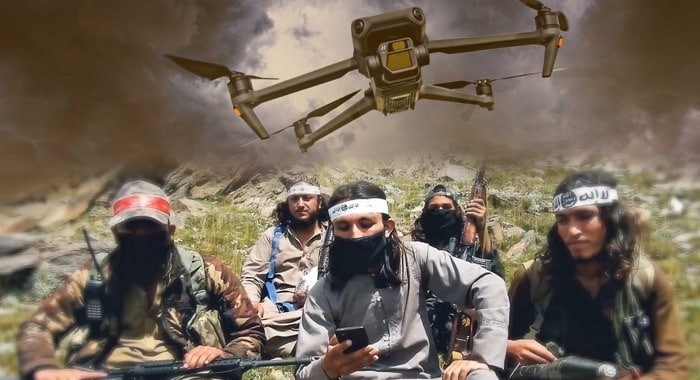The banned terrorist group Tehreek-e-Taliban Pakistan (TTP), officially referred to by Pakistani authorities as Fitna al-Khawarij (FAK), has reportedly intensified its efforts to acquire Chinese-made drones through networks based in Afghanistan. Intelligence sources indicate the group intends to use the drones for surveillance of border areas and potential attacks on military installations.
While limited use of drones by TTP has been reported in recent incidents, experts say the group has so far failed to use the technology effectively. Due to technical inexperience and lack of precision, most of their drone operations have missed intended military targets, at times endangering civilians instead.
“This highlights both their technological incompetence and the recklessness of their strategy,” analysts noted, adding that such actions not only expose TTP’s operational weaknesses but also reinforce its disregard for civilian lives.
Pakistan’s security and intelligence agencies are fully alert to these evolving threats and are actively countering them through enhanced surveillance, intelligence operations, and tactical responses.
According to national security experts, the war on terrorism has entered a new phase, one that involves not just physical battlefields but also technological and cyber domains. “Militant groups turning to emerging technologies poses a serious threat not only to Pakistan’s sovereignty but also to regional stability,” one analyst said.
Authorities warn that the use of drones by non-state actors represents a growing dimension in asymmetric warfare, requiring coordinated responses that go beyond brute force.
Experts emphasise that the effective response to such threats lies in a combination of national unity, advanced security strategies, and international cooperation. “This is no longer just a security issue — it’s a strategic challenge that must be addressed holistically,” they added.





